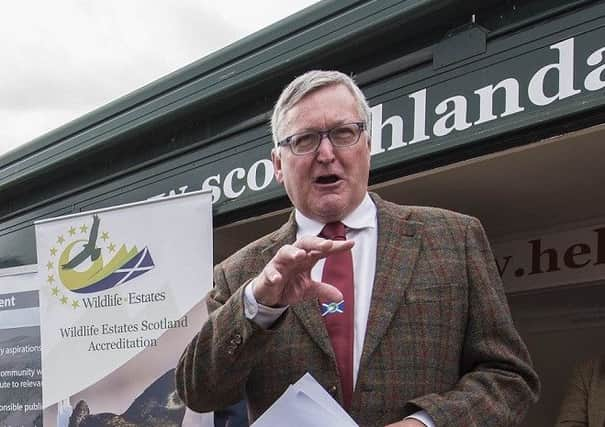Rural economy needs policies, not finger-pointing
This article contains affiliate links. We may earn a small commission on items purchased through this article, but that does not affect our editorial judgement.


The finger-pointing blitz saw the Scottish Government blame the UK government. Then opposition MSPs blamed the Scottish Government for its failings. It was all “blame, pointy finger, blame”.
This was a debate on the future of rural Scotland – and yet no-one got round to discussing the economic future of the countryside after we leave Europe and the protective cloak of the common agricultural policy (CAP) which has dominated rural life for nigh on 50 years will be discarded.
Advertisement
Hide AdAdvertisement
Hide AdThere was one exception to the lack of future vision and that concerned broadband, with no fingers being pointed on current, or even past errors as every politician who pontificated that day declared they wanted better broadband.
At least that is what I thought they said, as the video of the debate on my laptop juddered and buffered constantly. Everyone agrees better rural broadband should be rolled out over the country, but that is a small issue compared with the otherwise empty slate on which farming policies will have to be drawn. The broadband issue is O Grade politics when the MSPs should be dealing with Highers issues.
Not one politician from any political party speaking that afternoon – or indeed at any other time – has given any indication of what rural life post-Brexit should, or even could, be.
So far, it has been left to the lobby organisations such as NFU Scotland and Scottish Land & Estates to post their wish lists of future policies. Good on them for being on the front foot – but the vitally important piece missing in looking to the future is political leadership.
The Scottish Government has benefited in recent years from doing little or nothing other than complain about what either Westminster or Brussels has or has not done. Whatever these two political hubs have produced is either not enough, unfair, or unjust.
With responsibility for agricultural policy now coming north of the Border, this politically supine position is untenable.
Sadly, it is patently obvious that Westminster has not got a clue about life post-Brexit. Hardly a day passes without one UK minister or another proclaiming his or her preference for future policy, but three months after the vote there is resounding silence from the UK government on what the official position is. That may change this week at the Conservative Party conference, but do not hold your breath.
The devolved budget for life post-Brexit is not known so far, but this deficiency should not prevent the Scottish Government from listing its future priorities for rural Scotland.
Advertisement
Hide AdAdvertisement
Hide AdPlanned policies might have to be trimmed or even expanded once the budgetary outcome is known, but at least signposts to the future of the rural economy should be erected.
There are several key issues which should form the basis of Scotland’s rural future. These would include complete opposition to any lurch towards free trade. Farmers with any sense of history will remember the parlous state of the industry in the 1930s when free trade destroyed many farming businesses.
Another major plank in any future policy would be that it has to be broadly but not completely in line with England. This would be necessary to stop cross-border differences which sharp traders and other ne-er-do-wells would soon latch on to.
Equally, any future policy should be as simple as possible. This is not just a plea on behalf of the beleaguered computer but more to prevent the sort of manoeuvring whereby smart operators can win the farm subsidy lottery without much attention to producing food or protecting the environment.
A few years ago, the previous Scottish Government farming minister had the vision to appoint Brian Pack to look at how the then forthcoming CAP could be implemented to Scotland’s benefit. While much of Brian’s thinking was latterly engulfed by the political shenanigans in Brussels, at least he helped concentrate minds on what might be possible.
Brian is still recuperating from major surgery, otherwise it might have been a cunning plan to get him to examine how rural Scotland can best maximise the opportunities offered in a post-Brexit world.
In his enforced absence, there must be others out there who can lay down a rural policy blueprint and fill the gap the politicians are either unable or unwilling to do.
